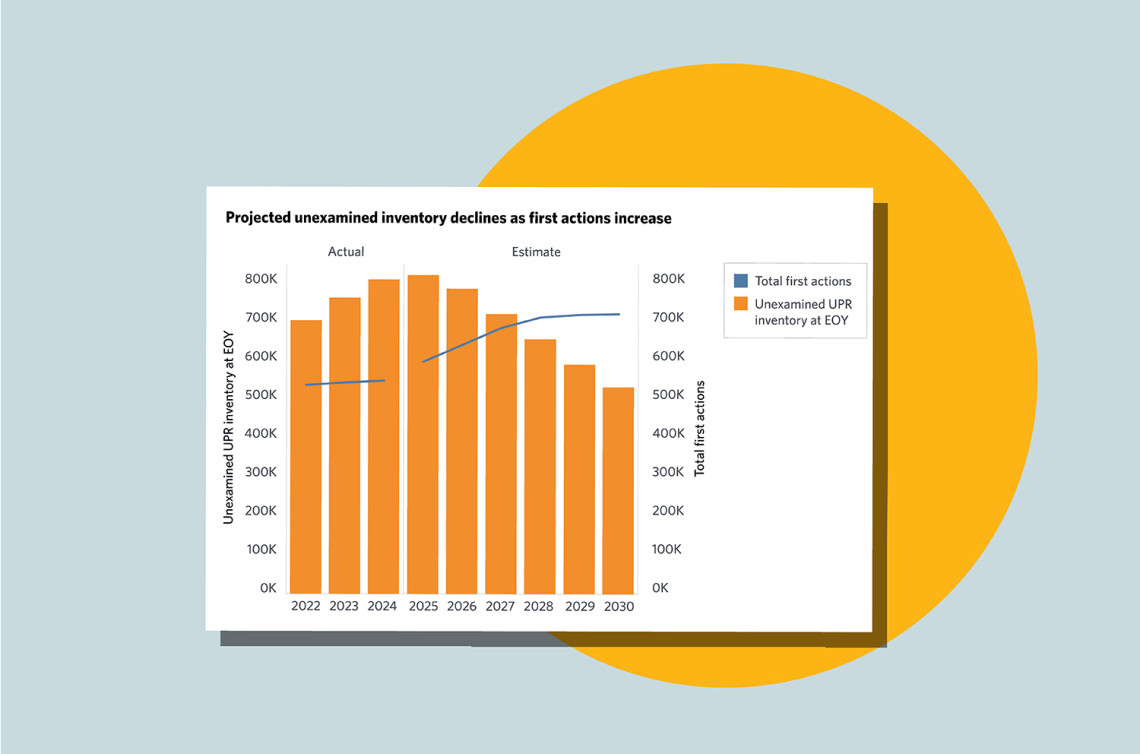On Friday, April 4, the USPTO hosted the final round of the National Patent Application Drafting Competition (NPADC) at its headquarters in Alexandria, Virginia. Hands-on experiences like the NPADC help shepherd in the next generation of intellectual property (IP) attorneys and practitioners and are key to the success of the American economy moving forward.
Blog
In-depth articles discussing the latest topics of interest to the USPTO and the intellectual property community.
Director's picks
Recent Posts

At America’s Innovation Agency, we recognize the tremendous responsibility and honor we have to examine the hundreds of thousands of patent applications we receive each year, thoroughly and reliably, and to make informed decisions whether each application should receive a patent grant. Patents are a vital part of our country’s economic strength and success. We lead the world in innovation, thanks in no small part to our intellectual property system that fosters new inventions through patents.

We recently shared that on January 18, 2025, Trademark Center will become the only way to apply for a trademark registration. While you can still submit applications in the Trademark Electronic Application System (TEAS) until then, I invite you to join the thousands of customers who have already tried Trademark Center. I think you’ll appreciate some of the updates and new capabilities as you get familiar with the system.

Patents – which help generate more than $8 trillion in economic activity each year in U.S. intellectual property (IP)-intensive industries – are critically important to incentivizing innovation and investment, growing America’s economy, and solving worldwide challenges such as climate change and pandemics. But patents only serve their intended purpose if they are robust and reliable.

The Leahy-Smith America Invents Act (AIA), the most significant patent legislation of the last 25 years, was enacted in 2011. Today we’re taking a moment to look back at one of the biggest changes the AIA made: the creation of new and efficient proceedings before the Patent Trial and Appeal Board (PTAB).

If you’ve ever helped cook a delicious Thanksgiving feast, you know just how much effort goes into the meal. From peeling spuds for a classic side dish, to getting the perfect roast on your chosen bird, to the dreaded clean-up duty after everyone has had their fill of pie, this celebration is made possible by hard work – and generations of inventors. The USPTO and Cade Museum have teamed up to explore Thanksgiving through innovation education.

October is National Disability Employment Awareness Month. The USPTO’s focus on inclusive innovation is to help lift up innovators, including the 29% of American adults with disabilities. Through our National Strategy for Inclusive Innovation, among other initiatives, we're working to make USPTO resources more accessible to people with disabilities.




